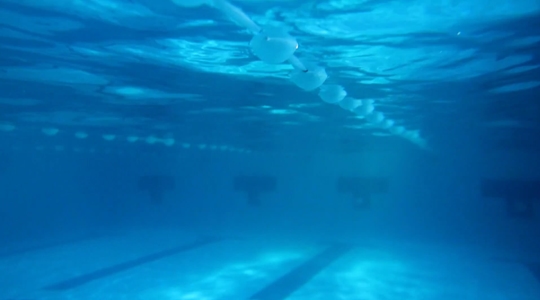Regulations for All Texas Pools
Safety requirements for private or public pools vary depending on which municipality they are in. However, the state of Texas has laws that standardize safety requirements for public pools throughout the state. While a homeowners’ association, local ordinance, or another regulatory body might provide stricter requirements than Texas law, starting with Texas state pool regulations will help determine if a pool is safe.
Pool Fence Standards in Texas
Every pool in Texas must be completely enclosed within a fence that is at least 48 inches tall. This fence must not be made from climbable material, like chain links for instance. A fence can only have climbable features, such as horizontal slats, if they are on the same side as the pool. Any gaps in the fence must not allow a sphere of 4 inches to pass under or through. Decorative openings in a pool fence must be smaller than 1 ¾ inches in all directions.
Pool Gate Requirements
All gates which allow access to a pool must also be at least 48 inches tall and follow all other fencing regulations. Texas law also requires gates to have self-closing and self-latching functionality. Finally, pool gates should open away from a pool and be able to lock. A safe pool gate should also have a latch that young children would not be able to open if the gate is left unlocked.
Requirements for Door & Windows Opening to Pools
Sometimes, homes have direct entrances to pools or windows that face toward pools. When a house’s door leads to a pool, Texas law requires them to have a “keyless bolting device” that is at least 36 inches from the ground. If a home has French doors or sliding doors, the first should have a deadbolt lock while the latter should have a bar-and-pin lock. Windows that would provide access to a pool must be permanently sealed.
Alarm Requirements
If a pool has a wall that serves as a boundary on one or more sides, any doors or windows must have an alarm installed on them. Alarm bypass buttons must be placed high enough for children to be unable to reach them.
Above-Ground Pools
When a pool is not a permanent fixture in the ground, it still should follow the same fencing regulations as permanent in-ground pools. Municipalities often have clear guidelines for above-ground pools. For example, the city of Houston requires a fence to surround all types of pools. Even if a municipality does not require above-ground pools to be fenced in, they likely require the ladder that provides access to the pool to be removed.
Call Our Texas Pool Accident Attorneys Today at (888) 493-1629
At Arnold & Itkin, we’ve seen too many families suffer because property managers and responsible entities were negligent about pool safety. The laws listed above apply to all pools. Regardless of where or how an accident occurred, pool owners or managers should be held accountable for accidents and the hardships they cause. Drowning takes seconds and requires vigilance on the part of everyone. Any drowning accident is a sign that someone failed to provide a safe environment for swimmers.
Arnold & Itkin is ready to help suffering families obtain the justice and compensation they deserve. Our drowning accident lawyers are ready to examine your case and pinpoint the negligent behavior that caused your family’s suffering. Once we’ve determined who is at fault for your loss, we’ll hold them accountable in court to make sure this never happens to anyone else. Learn how we can help today.
Call us at (888) 493-1629 for a free consultation with a drowning accident attorney. Our firm covers the cost of litigation for every case, so our clients pay nothing upfront.
